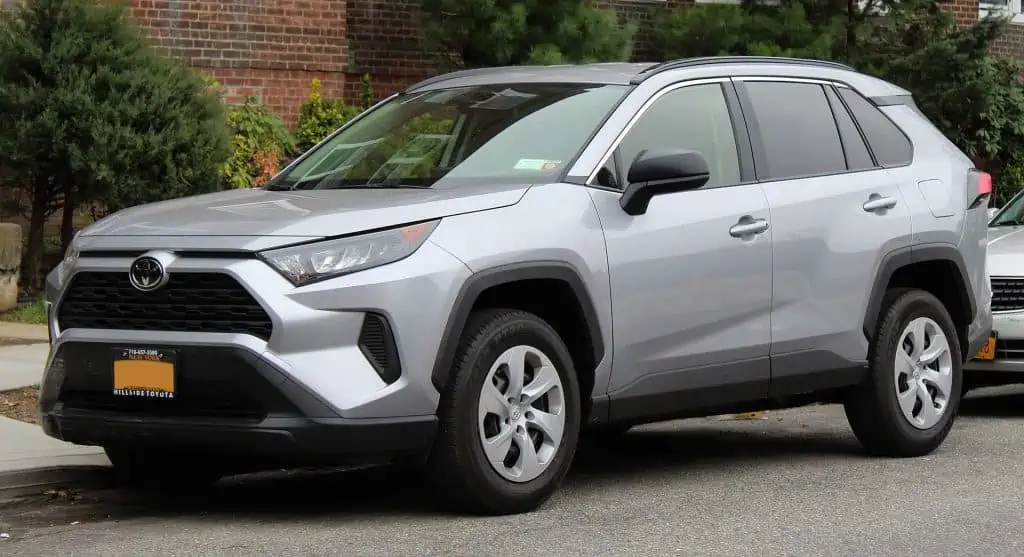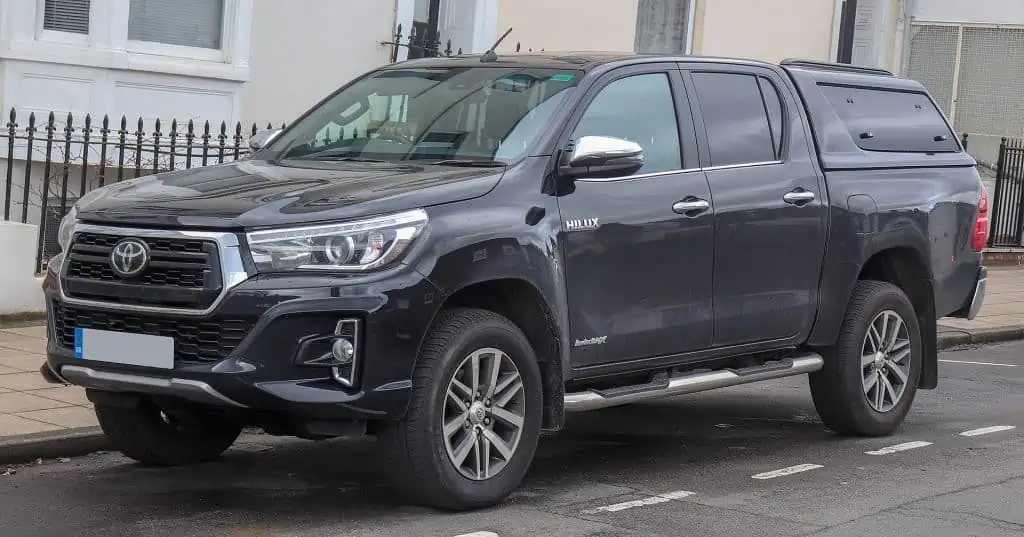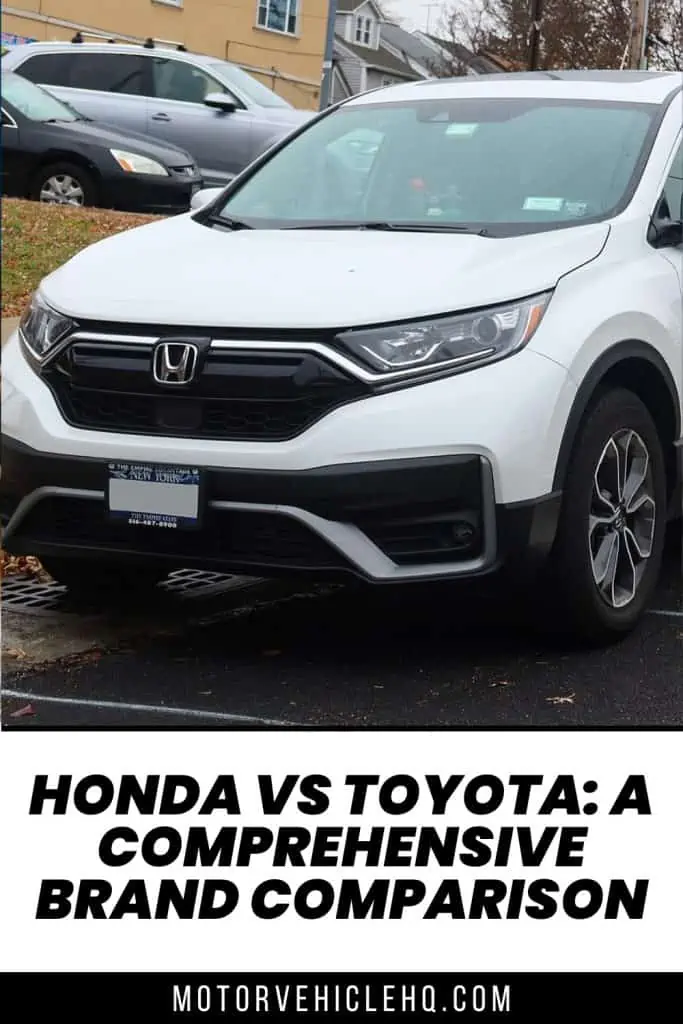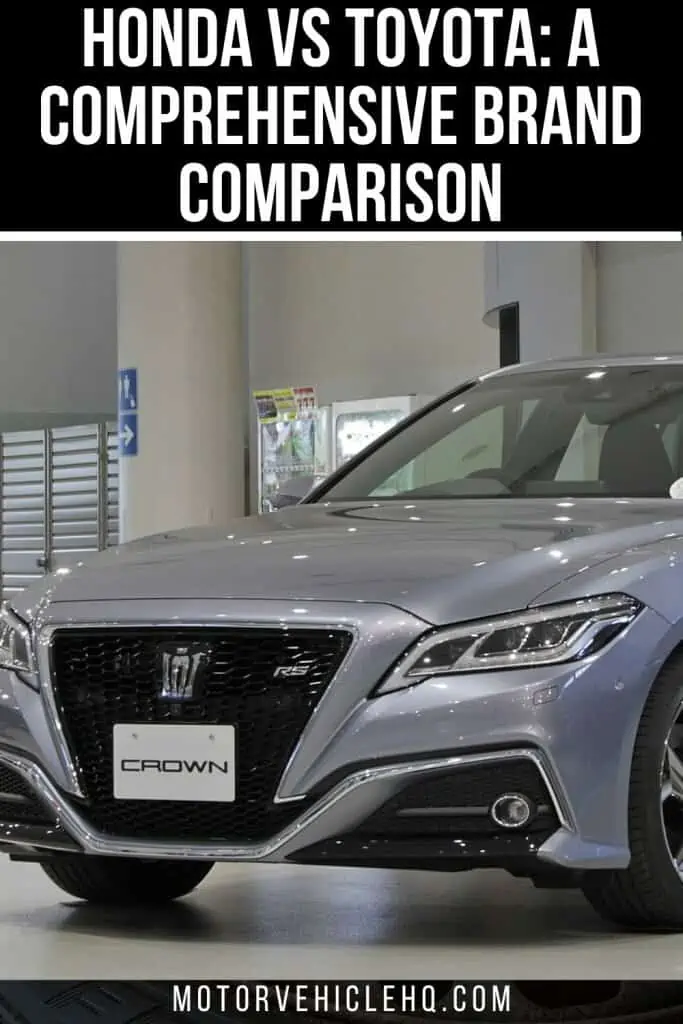The conflict between Honda and Toyota, two of the biggest automakers in Japan, is complicated. It’s a contentious rivalry that dates back to the 1960s when both brands started marketing their well-known cars and trucks in the country.
In 2019, more than 60 years later, the two automakers are still engaged in heated competition as they produce and sell millions of cars, trucks, hatchbacks, and SUVs annually in the US.
Toyota was established in 1937 by Kilchiro Toyoda and is best known for its best-selling sedans, such as the Corolla and Camry, as well as its well-liked SUVs, such as the Highlander and RAV4.
Soichiro Honda founded Honda following World War II. Although best known for its SUVs like the CR-V and Pilot as well as the Civic and Accord, Honda started making motorcycles in 1949 and unveiled its first car, a mini pickup, in 1963.
Both businesses have earned enviable reputations for producing reliable, high-quality vehicles that are comfortable and enjoyable to drive.
But how do Toyota and Honda differ from one another? Does one manufacturer produce cars with superior packaging, performance, and power than the other? What about the price? Here, we’ll contrast the two brands while addressing each of these crucial claims.
We’ll also address these seven concerns, allowing you to decide between Toyota and Honda when it comes time to purchase your next new or used car, truck, SUV, hybrid, or hatchback.
What Distinguishes Honda vs. Toyota?
Toyota is a much bigger and wealthier company than Honda, even though most Americans believe that they play on the same scale. Toyota is the most prosperous, dominant automaker in the world in terms of pure corporate value.
Honda is much smaller than Toyota and only has a quarter of its overall value. Toyota also sells a lot more cars than Honda does each year in the US.

With sales of 2,128,362 cars, trucks, SUVs, and minivans—the majority of which were built in North America—in 2018, Toyota overtook the competition as the nation’s top retail-selling automaker for the seventh consecutive year. Six auto assembly plants in the US are owned by Toyota.
In 2018, Americans purchased 1,445,894 Honda vehicles, the vast majority of which were also produced here. Since 1982, Honda has been manufacturing cars in the US. Honda was the first Japanese automaker to do so.
It now runs three sizable assembly plants: two in Ohio, one each in Alabama and Indiana. Toyota also provides more dealers for both new car buyers and buyers of pre-owned vehicles with certification.
Honda has 1054 dealers in the US compared to Toyota’s 1,500. Finding a Toyota dealer nearby may now be a little bit simpler, especially if you live in a rural area.
Additionally, it might be simpler to locate the precise model you’re looking for in dealer stock, and financing the purchase might be simpler. A dealer close to your home will save you time when the car needs service, so it’s important not just when you’re buying the car.
Who Has a Better Range of Models In Honda vs Toyota Comparison?
Toyota provides customers with more model options than Honda. Toyota is a full-line manufacturer, just like other industry titans like Ford and General Motors.
Including full-size trucks, it competes in the vast majority of vehicle classes. Toyota has 18 nameplates available for 2019, including numerous sedans, two pickup trucks, eight hybrid models, and six different SUVs.
Honda’s lineup is much more constrained. Honda offers 11 nameplates for the 2019 model year, including a few sedans, a pickup truck, two hybrid vehicles, a fully electric vehicle, and four different SUVs. Unexpectedly, Toyota doesn’t have an all-electric vehicle on the market.
However, both manufacturers do provide fuel-cell vehicles. Both the Toyota Mirai and Honda Clarity Fuel Cell use hydrogen, which is available at designated stations all over the Southwest, to produce electricity.
Then, similar to an EV, each is propelled by a sophisticated powertrain system that consists of a battery pack and an electric motor.
Buyers of automobiles should be aware that the Honda vs. Toyota rivalry extends to luxury vehicles. Honda owns Acura, while Toyota owns Lexus. And since they’re luxury vehicles, they frequently share parts with Toyota and Honda models, including engines.
Honda vs Toyota: Which Car Is the Better Option?
You should probably look for a car, truck, or SUV with front-wheel drive, all-wheel drive, or on-demand four-wheel drive if you live in a snowy area. Drivers who live in regions with unpredictable weather are less likely to prefer rear-wheel drive cars.
Numerous front-wheel drive and all-wheel drive vehicles are available from both Honda and Toyota. All Honda vehicles are front-wheel-drive. Some of its models, including the Ridgeline pickup truck and all of its SUVs, come with an all-wheel-drive system.
The Honda HR-V, CR-V, and its largest crossover, the seven-passenger Pilot with three rows of seating, all have an all-wheel drive option. All Toyota vehicles have front-wheel drive. The rear-wheel-drive Toyota 86 sports coupe is the exception.
Eleventh-generation Honda Civic by SsmIntrigue / CC BY-SA 4.0. Greater power and performance are available in the front-wheel Honda Civic Si and Honda Civic Type R models.
A four-wheel drive system is available on two Toyota pickups, the Tacoma and the full-size Tundra, which is necessary for more serious off-road driving. Three Toyota SUVs are also affected by this.
Until the driver switches the 4Runner, Sequoia, and Land Cruiser into four-wheel drive, which is as easy as pushing a button, they are rear-wheel drive vehicles. These three trucks aren’t crossovers based on cars. They resemble Toyota pickup trucks in that they have more robust ladder-type frames.
This gives Toyota the advantage over off-road enthusiasts over Honda. Other front-wheel-drive SUVs made by Toyota include the Highlander, C-HR, and the wildly popular RAV4. However, the Highlander and the RAV4 both offer an all-wheel-drive system.
Honda vs. Toyota: Which Is More Reliable?
The two brands have set the bar for quality, dependability, and dependability since the 1970s when Toyota and Honda models started to become more well-known in America. And in most cases, that is still true. Both produce durable cars and trucks with fewer defects and longer lifespans than the industry standard.
In terms of recent predicted reliability scores, Toyota does, however, have a very slight advantage over Honda. Only one Toyota model, the Sienna minivan, scored below the industry average, with the majority of them scoring significantly higher. Scores were higher for the more well-liked Honda Odyssey minivan.
The Accord received a rating that was significantly higher than the average of all the Honda models. A few other Hondas did not perform as well, but the majority of them did. However, no Honda model received a predicted reliability rating that was below average.
Honda vs. Toyota: Which Is Cheaper?
In many vehicle classes, but not all, Toyota and Honda are direct rivals. When comparing prices between Toyota and Honda, there are more models available than there are for Honda.
We’ve listed each Toyota and Honda model along with its base price, excluding the mandatory destination fee, which is typically about $900 on most models, to make it easier for you to determine which models are less expensive.
Observe that Honda’s lineup spans from roughly $16,000 to just under $35,000, while Toyota’s lineup spans from $15,600 to over $85,000. Comparable models typically come with comparable features and choices.
- Honda Fit $16,190 vs. Toyota Yaris $15,600
- Honda Civic $19,450 vs. Toyota Corolla $19,500
- Honda Insight $22,930 vs. Toyota Prius $23,770
- Honda Accord $23,720 vs. Toyota Camry $24,095
- Honda Civic Si Coupe $24,300 vs. Toyota 86 $26,655
- Honda Clarity Plug-In $33,400 vs. Toyota Prius Prime $27,350
- Honda Clarity (Lease Only) vs. Toyota Mirai $58,500
- Honda Odyssey $30,190 vs Toyota Sienna $31,415
- Honda Ridgeline $29,990 vs. Toyota Tacoma $25,850
- Honda HR-V $20,520 vs. Toyota C-HR $21,145
- Honda CR-V $24,350 vs. Toyota RAV4 $25,650
- Honda Pilot $31,450 vs. Toyota Highlander $31,680
- Honda Passport $31,990 vs. Toyota 4Runner $35,310
Fifth-generation Honda CR-V by Kevauto / CC BY-SA 4.0. One of the top candidates for the Best Hybrid and Electric SUV for the Money award for 2021 was the Honda CR-V Hybrid.
Honda doesn’t directly compete with these Toyota models.
- The Toyota Prius C is $21,530
- The Toyota Avalon is $35,650
- The Toyota Tundra is $31,670
- The Toyota Sequoia is $49,050
- The Toyota Land Cruiser is $85,185
Whose Reputation Is Better In Honda vs. Toyota Comparison?
Both Toyota and Honda have stellar reputations and devoted followings, but Toyota offers a much larger selection of hybrid vehicles than Honda, including the well-known Prius.
As a result, it enjoys a better reputation among environmentalists and consumers who value fuel efficiency. Although Honda’s vehicles are renowned for their high fuel efficiency, the company is better known for producing models that are enjoyable to drive.
The majority of performance lovers favor Honda. Compared to Toyota, it provides more turbocharged engines. Additionally, the front-wheel Honda Civic Si and Honda Civic Type R offer greater power and performance despite the Toyota 86’s rear-wheel drive design.
They are also more popular with performance drivers because they handle better than the Toyota 86. Overall, driving a Honda is more sporty than a Toyota.
But that distance is shrinking. Toyota has worked very hard to improve the driving experience and the dynamic styling of its products over the past few years. Toyota is no longer the model for uninteresting cars, though Honda still outperforms it in terms of performance.
Additionally, it’s new rear-wheel-drive, turbocharged Toyota Supra sports car will undoubtedly enhance the brand’s reputation for performance.
Whose Maintenance Costs are Lower In Honda vs. Toyota Comparison?
When it comes to maintenance costs over the first 10 years of a car’s life, data shows that Toyotas and Hondas are among the least expensive vehicles to keep on the road. In contrast to Honda, Toyota does have a slight advantage.
The average Honda owner spends $7,200 on maintenance during the first ten years of ownership, which is less than any other brand save Lexus ($7,000) and Toyota ($5,500). Keep in mind that Toyota owns Lexus. This is especially important for customers who are looking at used and certified pre-owned cars.
A comprehensive but constrained warranty is also included as standard equipment on every new Toyota and Honda. A vehicle warranty is provided for every Toyota for 36 months or 36,000 miles, whichever comes first.
The owner is shielded from the expensive engine and transmission repairs by its powertrain coverage, which is valid for 60 months or 60,000 miles.
Additionally, a 3-Year/36,000-Mile Limited Warranty is offered with every new Honda. However, Honda’s powertrain warranty is only valid for five years or 60,000 miles, which is a shorter period than Toyota’s.
The Toyota C-HR by Vauxford / CC BY-SA 4.0. Toyota also produces the Highlander, C-HR, and the hugely popular RAV4 as front-wheel-drive SUVs.
Which Brand Boasts Better Reviews: Honda vs. Toyota?
Spend some time online reading a ton of professional car reviews before making any new or used car purchases. They are simple to locate and frequently include videos of the vehicle’s interior, which is always useful.
Although the majority of Toyota and Honda models get excellent reviews and are frequently recommended by experts, Honda typically wins out in comparisons between the two.
This frequently occurs because the Honda is more enjoyable to drive than the Toyota, and the majority of professional auto reviewers are car enthusiasts who appreciate the added performance.
Honda typically offers more interior room, cargo volume, and access than Toyota rivals because they also exude superior packaging. However, there are some exceptions. Most of the time, Toyota’s pickup trucks and hybrid models are rated higher than Honda’s equivalent models.
For instance, the Toyota Tacoma is usually chosen as the winner when the two trucks are compared because it is significantly more capable off-road than the Honda Ridgeline.
Reviewers typically suggest the Ridgeline if you don’t want to take the truck off-road because it rides more comfortably and smoothly thanks to its crossover chassis.
The Toyota Prius and the Prius Prime are preferred over the Honda Clarity in the majority of online auto reviews. Both Honda and Toyota produce high-quality goods. Additionally, they are appealing to a variety of car buyers.
Both brands offer a wide selection of high-quality cars and trucks to suit a diverse clientele and the demographics and psychographics of their customers.
Everyone can find a Toyota or Honda. As a result, even though the Toyota vs. Honda debate will undoubtedly continue, we advise comparing the two brands to find the best car for you and your family.
Honda Vs. Toyota: Comparison of Performance
Honda and Toyota have been associated with various driving performance styles for many decades. Honda is renowned for making vehicles with thrilling ride qualities thanks to their relatively tight suspensions and immersive road feel, as well as impressive handling thanks to precise steering.
The engines have also been made leaner and meaner by Honda in recent years without sacrificing their overall output, giving the cars more oomph on the road than ever. Toyota, in contrast, has never been known to deliver an innovative or inspiring performance.
This is because the engines do not feel as spirited, the suspensions tend to be softer, and the handling is less precise. Despite the manufacturer’s admirable efforts to make them livelier than previous model years, Toyota vehicles have long had a reputation for being anemic or boring on the road.
Honda Vs. Toyota: Comparison of Efficiency
Honda has always demonstrated a commitment to advancing its engine technology to increase the productivity of its workhorses. VTEC, which stands for “Variable Valve Timing & Lift Electronic Control,” was developed in the 1980s to increase engine performance at high RPMs while lowering fuel consumption.
The Toyota RAV4 by Kevauto / CC BY-SA 4.0. The RAV4 Hybrid, which won Best Hybrid and Electric SUV for the Money in 2021, also received an 8.0 for its enjoyable ride and exceptional fuel economy.
The VTEC legacy was also carried on by Earth Dreams Technology in 2013 with the addition of features like turbochargers, gasoline direct injection, and the Atkinson Cycle.
Engines today are smaller, some as small as a 1.0-liter 3-cylinder, more powerful, and use less gas while still producing more horsepower and torque. Toyota hasn’t always shown the same level of dedication to the effectiveness of its engines over the years.
Honda Vs. Toyota: Comparison of Safety
While airbags, a rearview camera, vehicle stability assist with traction control, an anti-lock braking system, electronic brake-force distribution, and brake assist are among the safety features that are now expected to be standard across the board in cars, automakers like Honda go step further with the Honda Sensing suite.
Driver-assistance technologies that are still optional or not available on other cars are included in Honda Sensing, which is a standard feature on all Honda vehicles.
These technologies include blind spot monitoring with a cross-traffic monitor to warn you of difficult-to-see vehicles to your side or passing you from behind. Collision mitigation braking applies brake pressure when an unavoidable collision is determined.
Road departure mitigation adjusts steering and braking if you cross detected lanes without signaling. Toyota has a comparable package, but it lacks some advanced features like collision mitigation braking and blind-spot, and cross-traffic monitoring systems.
Honda Vs. Toyota: Comparison of Sedans
Civic, Fit, Accord, and Insight are popular Honda sedans. Traditional sedans, hatchbacks, coupes, and hybrid vehicles are available in a good selection among Honda’s small cars.
These vehicles typically receive favorable reviews and deliver class-leading fuel economy. The majority of safety features are standard, and they have good interior entertainment and technological options.
Corolla, Prius, Camry, and Avalon are popular Toyota sedans. Honda has an advantage with smaller vehicles, but Toyota ultimately wins the car market due to its versatility and wider selection.
They frequently come up when discussing the best value for your money because they are frequently strong, offer lots of room for cargo and passengers, and are typically powerful. Honda doesn’t offer any vehicles that are larger than the Accord, so Toyota wins by default thanks to its large sedan option, the Avalon.
Honda Vs. Toyota: Comparison of SUVs
The popularity of SUVs in the US has increased recently, and many automakers have reorganized their entire product lines to focus more on family-oriented vehicles that offer a little more sportiness than the conventional minivan. Despite not being the typical players in the SUV market, both Honda and Toyota offer a wide range of options.
Honda’s HR-V, CRV, and Passport are popular SUVs. Despite having only a few reliable SUV options over the past ten years, Honda has dominated the small and midsize SUV segments.
Honda offers a surprisingly large amount of room for passengers and cargo, as well as standard safety and technology features. It lacks the variety of options that Toyota and many American manufacturers provide, which causes it to fall a little short in terms of larger options.
The Toyota Hilux by Vauxford / CC BY-SA 4.0. Even though the majority of Americans think that Toyota and Honda operate on the same level, Toyota is a much larger and wealthier company. In terms of pure corporate value, Toyota is the most prosperous and dominant automaker in the world.
The C-HR, RAV4, 4Runner, Highlander, and Sequoia are popular Toyota SUVs. When directly compared to Honda, Toyota’s compact and midsize SUVs fall a little short, but they still offer some good options for tech and entertainment, dependability, and general safety.
Toyota, with a few different models offering extra seating, will win if you need an SUV with room for up to 8 people. The larger Toyota SUVs can give you some confidence if you’re looking to venture off the beaten path even though they aren’t traditional off-roaders like Jeep.
Honda Vs. Toyota: Comparison of Minivans
There is only one option offered by each brand, but they are both competitive in the minivan market. Both the Odyssey and Sienna are reasonably priced base models with up to 8 seats and a wide range of safety and technological options.
When it comes to fuel economy, the Sienna has a slight advantage, and the Odyssey has an advantage when it comes to the standard Honda Sensing safety package. You’ll be safe with either one because they both have excellent reviews and frequently come up as contenders for the title of the best minivan on the market.
The Toyota Sienna (8.3), redesigned for the 2021 model year, offers a roomy interior with supportive seating for eight passengers and an intuitive infotainment system. It also performs well on pavement. The Sienna has impressive fuel efficiency ratings and an above-average predicted reliability rating.
With its attractive interior, roomy seating for eight passengers, and optional features like a built-in vacuum and an in-cabin camera, the Honda Odyssey (8.7) takes the top spot in our ranking of minivans. Our Best Minivan for the Money award for 2021 went to the Odyssey. The Honda Sensing suite of cutting-edge safety features, which includes adaptive cruise control and automatic high-beam headlights, is standard equipment on all models.
The Sienna offers all-wheel drive as an option, but the Odyssey does not.
Honda Vs. Toyota: Comparison of Electric and Hybrid Vehicles
As early adopters of electric and hybrid vehicles, Honda and Toyota have frequently dominated the market for this segment. Both provide customers with a wide range of hybrid and electric options from their primary product lines.
The Accord, Insight, CR-V, and Clarity are popular Honda electric vehicles. The newer Insight and Clarity models add some new options to the lineup, and the CR-V hybrid was a finalist for best value vehicle in the class. Since there aren’t many hybrid cars available, Toyota has a slight advantage in terms of selection.
RAV4, 4Runner, Prius, Camry, and Corolla are popular Toyota electric vehicles. The Corolla won the same prize for the midsize sedan hybrid and electric category in 2021, and the RAV4 won it for the hybrid and electric SUV category. The Prius is still a mainstay for electric and hybrid vehicles despite being one of the highest-rated SUVs and having been around for almost 15 years. The space, price, and fuel efficiency of the electric and hybrid models are all excellent.
1. The Hybrid and Electric SUVs
Toyota produces several hybrid SUVs. Our ranking of hybrid and electric SUVs is headed by the Highlander Hybrid (8.0), which has quick acceleration and a high predicted reliability rating.
Our Best Hybrid and Electric SUV for the Money winner for 2021, the RAV4 Hybrid, also received an 8.0 for its engaging ride and remarkable fuel economy. A brand-new hybrid crossover with excellent gas mileage and a nearly luxurious interior is the Toyota Venza. There is no overall rating for Venza.
The Toyota Tacoma by Kevauto / CC BY-SA 4.0. Toyota will prevail as a result of their availability of two models, the full-size Tundra and the small Tacoma.
The only other vehicle in this category is the Honda CR-V Hybrid (7.8). Compared to Toyota’s models, it has a smaller cabin, fewer standard features, and slightly worse fuel economy ratings. The CR-V Hybrid has been selected as one of the top contenders for our Best Hybrid and Electric SUV for the Money award for 2021.
2. The Electric and Hybrid Cars
Toyota produces several hybrid vehicles. In our ranking of hybrid and electric vehicles, the Camry Hybrid and Avalon Hybrid both earn high marks (8.4). Toyota also produces the Prius (7.7), Prius Prime, and Corolla Hybrid (7.9). (7.5).
The Corolla Hybrid won our 2021 Best Hybrid or Electric Car for the Money award thanks to its excellent fuel efficiency rating and above-average predicted reliability score. Although the Prius models all have roomy cabins and great gas mileage, their engines lack power.
Honda produces the Insight and Accord Hybrid (8.3). (8.0). The Clarity Hybrid plug-in from the company has no overall rating because it has not been given a safety rating.
Honda wins this segment thanks to a higher average score.
Honda Vs. Toyota: Comparison of Pickup Trucks
Toyota will triumph because they offer two models: the full-size Tundra and the compact Tacoma. The Ridgeline is the only truck available from Honda. In terms of handling and agility, the Ridgeline has been compared to its SUV cousins and ranks among the best truck options on the market.
Both truck options offer plenty of power and infotainment options, and the Tundra can seat a whopping 6 people. They both include Toyota’s standard infotainment and safety features, but they are less capable of towing overall than other popular truck options.
You’ll likely choose a fantastic vehicle if any of the above-mentioned models are on your shortlist. Both Honda and Toyota are frequently ranked among the best, most reasonably priced, and cutting-edge automakers in terms of safety and technology. To determine the best fit, it’s always a good idea to test-drive various models from different manufacturers.
1. The Compact Pickup Trucks
The Toyota Tacoma (7.2) navigates trails and difficult terrain with ease. It has a maximum towing capacity of 6,800 pounds, which is typical for the compact pickup market. Although its cabin is cozy and well-equipped with technology, its ride on rough surfaces can feel underpowered and bumpy.
With its car-like handling, the Honda Ridgeline (8.3) feels agile and responsive. Its cabin offers lots of room for both passengers and cargo, plush seating, and a variety of standard amenities. Now included as standard equipment is an infotainment system with an 8-inch touchscreen, Apple CarPlay, and Android Auto. Automatic emergency braking, forward collision warnings, and adaptive cruise control are standard on all models.
Honda triumphs in this category thanks to Ridgeline’s higher rating.
2. The Large Pickup Trucks
A strong V8 engine that produces a lot of power and quick acceleration is standard on the Toyota Tundra. Although it has a roomy interior and an easy-to-use infotainment system, its score of 6.5 is affected by its outdated cabin design and below-average towing and hauling capacity.
Every Toyota model comes equipped with Toyota’s Entune infotainment system with a 7-inch touchscreen, Apple CarPlay, Android Auto, a Wi-Fi hotspot, and these features as standard.
Six people can fit comfortably in the cabin, but the seats aren’t very comfortable. Although the ride may seem jarring, the Tundra’s suspension doesn’t smooth out road jolts as well as competitors’ trucks.
Apple CarPlay, Android Auto, a Wi-Fi hotspot, and Toyota’s Entune infotainment system with a 7-inch touchscreen are all standard on every model. Forward collision warning, pedestrian detection, and the automatic emergency braking are all standard safety features.
There are no full-size pickup trucks produced by Honda.
The Conclusion
Both Toyota and Honda produce a strong lineup of nameplates in a variety of market segments. With its sporty and roomy small and midsize SUV, small car, hybrid, and minivan models, Honda made a stronger showing.
In contrast, Toyota won the sports car and full-size pickup truck categories, where Honda has no rivalry, as well as the large car, large SUV, and full-size pickup truck segments.
Check out the main pages of both of these automakers to see their complete lineups of cars, trucks, SUVs, and minivans.
Fifth-generation Honda CR-V by Kevauto / CC BY-SA 4.0
The Toyota Crown RS by TTTNIS / CC0

Jim Wicks is the founder of MotorVehicleHQ. With over two decades of experience in the automotive industry and a degree in Automotive Technology, Jim is a certified car expert who has worked in various roles ranging from a mechanic, car dealership manager, to a racing car driver. He has owned more than 20 cars over the past 15 years. Ask him about any vehicle you see on the road and he can tell you the make, model and year. He loves the aesthetics of all things cars, and keeps his vehicles in pristine condition.
In his free time, Jim enjoys getting his hands dirty under the hood of a classic car or taking long drives along the country roads. His favorite car? A 1967 Shelby GT500, a true classic that, according to Jim, “represents the pure essence of American muscle.”








